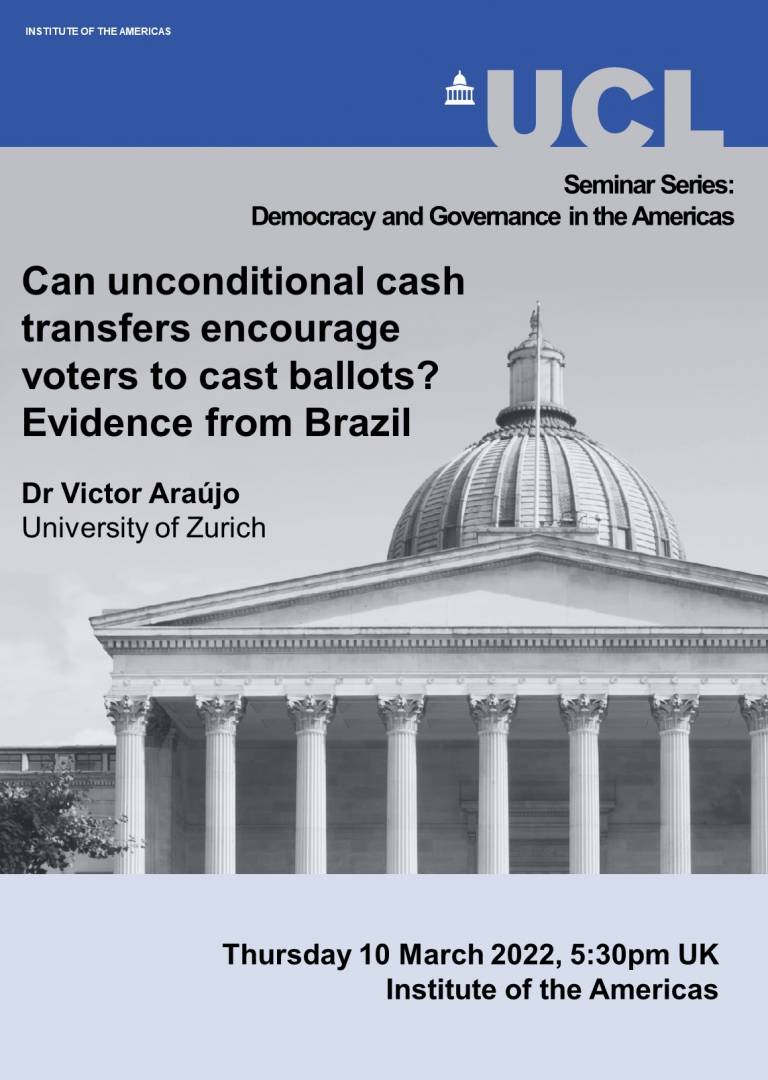Can unconditional cash transfers encourage voters to cast ballots? Evidence from Brazil
10 March 2022, 5:30 pm–7:00 pm

An event part of the UCL Institute of the Americas series Democracy and Governance in the Americas
This event is free.
Event Information
Open to
- All
Availability
- Sold out
Cost
- Free
Organiser
-
UCL Institute of the Americas
Low-income voters are typically underrepresented in elections. Even in countries adopting compulsory voting, there is a consolidated pattern of voter turnout decline among the poor. A growing conceptual literature suggests that unconditional cash transfers can enhance the electoral participation of low-income voters by either decreasing the costs of gathering information about candidates and their proposals or by signaling that the benefits of voting do outweigh its costs. In this article, I formally test these claims by leveraging Maricá’s unconditional cash transfer (MUCT), the largest UCT in Latin America implemented in Brazil in 2013. Causal estimates from a difference-in-differences design show that voter abstention decreased by 15% after the cash transfer intervention in Maricá. Furthermore, the share of undecided voters -- typically those who decide to discard their votes instead of voting for one of the candidates displayed on the ballot - decreased by 33% after the MUCT implementation. About 13% of registered voters in Maricá would not have voted in general elections held in 2014 and 2018 in the absence of MUCT. These findings suggest that periodic unconditional transfers can mobilize low-income voters and encourage them to participate in elections.
Chair: Dr Néstor Castañeda (Associate Professor of Latin American Political Economy - UCL Institute of the Americas)
About the Speaker
Dr Victor Araújo
Postdoctoral researcher in the Department of Political Science at University of Zurich
More about Dr Victor AraújoOther events in this series
 Close
Close

